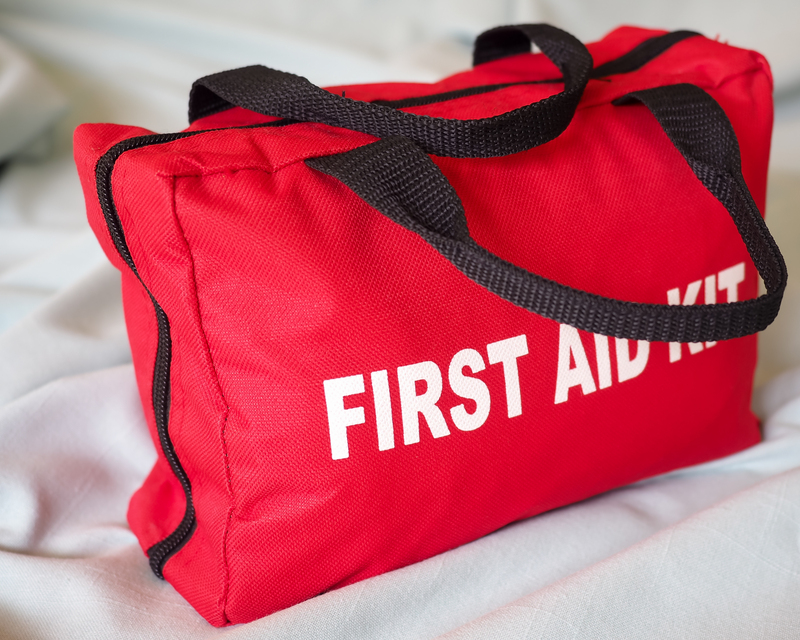The Best Way to Store Your Freezer Safely When It's Not in Use
Properly storing your freezer when it's not in use is crucial for ensuring its longevity, operational efficiency, and safety. Whether you're dealing with a chest freezer, upright freezer, or a compact model, knowing the best practices for storage can save you time, money, and potential headaches in the future. In this comprehensive guide, we'll explore the best way to store your freezer safely when it's not being used, providing in-depth tips, cleaning instructions, storage location ideas, and maintenance advice.
Why Is It Important to Store a Freezer Properly When Not in Use?
- Prevents Mold and Odors: If a freezer is not prepped appropriately, moisture, food particles, and bacteria can lead to unpleasant smells and unhealthy mold growth.
- Preserves Appliance Lifespan: Proper storage can significantly extend the life of your freezer by guarding against corrosion, rust, and mechanical failure.
- Ensures Safety: Unplugged or improperly secured freezers can pose electrical hazards or even attract pests.
- Saves Money: Maintaining your freezer in excellent condition means fewer repairs and replacements down the road.

Essential Steps for Storing Your Freezer When Not in Use
Before you move your freezer to storage, follow these steps to prepare it adequately and ensure it remains in optimal condition:
1. Remove All Items and Defrost Thoroughly
- Empty the Freezer Completely: Take out all food, shelves, bins, and accessories. If you leave food inside, it will spoil and cause severe odors.
-
Defrost the Freezer:
- Turn off and unplug the freezer.
- Open the door and allow the ice to melt naturally--placing towels around the base can help absorb any excess water.
- Avoid using sharp objects to remove ice as this can damage the interior.
2. Deep Clean the Interior and Exterior
- Use Mild Cleaning Solutions: Mix warm water with a little baking soda or gentle dish soap. Wipe down the walls, compartments, and gasket seals.
- Rinse and Dry: Wipe off any residue with a clean, damp cloth. Then, completely air dry all surfaces to prevent mold and mildew.
- Clean the Exterior: Dust and wash the outer case and, if possible, vacuum the coils or vents on the back for improved future performance.
3. Protect Against Odors and Mold
- Deodorize: Place an open box of baking soda or a few charcoal briquettes inside the freezer to absorb any remaining scents during storage.
- Leave the Door Ajar: Never seal the freezer door entirely. Use a rolled towel, wedge, or purpose-made freezer door spacer to keep the door slightly open. This promotes air circulation and keeps mold and mildew at bay.
4. Move and Store Your Freezer Properly
Choosing the right location is essential for safe and effective freezer storage.
- Pick a Dry, Cool Location: Garages, basements, or sheds can be suitable, but ensure they're dry and not subject to temperature extremes. Avoid storing the freezer in direct sunlight or damp areas, which can damage the components.
- Protect from Dust and Debris: Cover the freezer with a breathable cloth or tarp--never use plastic sheeting that traps moisture--to prevent dust accumulation.
- Elevate If Possible: If storing in a basement, place the freezer on wood blocks or pallets to protect it from potential flooding.
5. Secure and Maintain the Power Cord
- Unplug and Inspect: Before storage, unplug the appliance and check the cord for wear or damage. Replace if necessary.
- Safely Store the Cord: Coil the cord loosely and secure it to the appliance with tape or a twist tie to avoid tripping hazards and prevent the cord from getting caught or pinched.
6. Routine Maintenance During Storage
- Check Periodically: Every 1-2 months, inspect the inside and outside for any signs of mold, mildew, pests, or moisture buildup.
- Reapply Odor Absorbers: Refresh baking soda or charcoal as needed to keep the freezer smelling fresh.
Where Should You Store a Freezer When It's Not in Use?
Different types of freezers might have particular storage needs. Here are preferred locations and important considerations for each:
- Garage: Make sure the garage is insulated and doesn't experience significant fluctuations in temperature or humidity. Place the unit away from direct sunlight and off the floor.
- Basement: Basements are cool and generally suitable as long as they are dry. Elevate the freezer and monitor for any leaks or humidity.
- Shed or Storage Unit: Only opt for these if they offer ample protection from weather, rodents, and insects. Inside storage units, consider moisture control products.
- Indoors: If you have space in a utility room or an unused corner, this is often the safest option for short- to mid-term storage.
The Best Way to Store Different Types of Freezers
Chest Freezers
- Ensure ample ventilation around the base and sides.
- Keep the lid ajar by 1 to 2 inches with a wedge.
- Store away from chemicals, paints, or solvents.
Upright Freezers
- Upright models can be slightly more prone to mold if the door is sealed tightly. Always secure the door with a spacer.
- Lock or tie the door closed loosely so it doesn't accidentally swing open.
- Secure shelves and drawers to prevent breakage during movement.
Compact or Mini Freezers
- The same rules apply, though these are easier to keep indoors or move to higher, safer locations.
- Ensure the power cord is not pinched or under tension.
Common Mistakes to Avoid When Storing Freezers
- Storing Without Cleaning: Food particles left inside will rot and create stubborn smells that can be almost impossible to remove.
- Keeping the Freezer Sealed Shut: This restricts airflow, leading to mold and mildew. Always leave a small gap with a prop or wedge.
- Covering With Plastic: Plastic traps moisture and does not let air circulate, which can cause rust and mold growth.
- Storing in Extreme Temperatures: Both excessive heat and below-freezing conditions can damage interior parts, gaskets, and electrical components.
- Forgetting to Maintain During Storage: Every couple of months, check for pests, moisture, or new odors.
Supplies Needed for Storing Your Freezer
- Baking soda or activated charcoal (for odor control)
- Gentle cleaning supplies (baking soda, mild soap, sponges, cloths)
- Dry towels
- Door spacer or rolled towel
- Twist ties or tape for securing the power cord
- Breathable cover (cloth, old sheet, or specialized appliance cover)
- Wood blocks or pallets for elevation (if necessary)
How to Prep a Freezer for Seasonal Storage
If you only use your freezer seasonally, such as for summer harvests or holiday meal prep, taking the right approach to short-term off-season storage can make a big difference. Here's what to do:
- After Emptying: Defrost and clean the freezer as if for long-term storage.
- Leave on Standby: If you anticipate using it within a month or two, you may leave it plugged in and running empty--be sure to keep the interior clean and occasionally wipe it down.
- If Unplugging: Use all the steps outlined above for cleaning, propping the door, and protecting the appliance.
Is It Bad to Leave a Freezer Unplugged?
Leaving a freezer unplugged is not inherently harmful as long as you follow the correct storage procedures. The key risks arise from not allowing the appliance to dry completely and keeping the door sealed. If managed correctly, unplugged freezers can last for years in storage and be ready for use at any time. Just remember to:
- Allow all moisture to evaporate after defrosting.
- Prop the door open slightly.
- Store in a dry, temperature-moderated environment.
- Periodically check for odors, mold, or pests.
Reactivating Your Freezer from Storage: A Quick Guide
- Inspect Thoroughly: Check for dust, odors, and signs of rust. Clean if necessary before plugging in.
- Allow to Sit Upright: If the freezer was moved or tilted, let it stand upright for several hours (preferably 24) before powering on. This lets refrigerant fluids settle.
- Plug In and Test: Start the freezer empty and check if it cools down properly before reloading food.
- Monitor for Leaks or Strange Sounds: Immediately address any odd noises or leaks before loading with perishable items.

Frequently Asked Questions About Freezer Storage
Can I store my freezer outdoors?
It's generally not recommended to store a freezer outdoors unless you have a designated weatherproof shelter. Exposure to rain, direct sunlight, and fluctuating temperatures can damage the appliance significantly.
How can I avoid pests during freezer storage?
Clean the freezer thoroughly and store it in a sealed, pest-resistant area. Leaving the door slightly open also discourages rodents or insects from nesting inside.
Is it safer to store my freezer upright or on its side?
Always store freezers upright. Laying a freezer on its side or back for extended periods can damage internal components and cause leaks when reactivated.
How often should I check on my stored freezer?
It's a good idea to inspect your stored freezer every 1-2 months for odors, moisture, or any external damage.
Conclusion: The Safest Way to Store a Freezer When It's Not in Use
Taking the right steps to store your freezer safely when not in use is essential for keeping it functional, odor-free, and ready for action when you need it again. By following these best practices--thoroughly cleaning, drying, protecting from the elements, and maintaining airflow--you ensure your investment remains in top condition for years to come.
For further peace of mind, remember: Always prop the door, periodically inspect the appliance, and never use plastic covers that trap moisture. These simple habits are the best way to store your freezer safely for both short-term and long-term needs--so you can enjoy fresh, cold storage whenever you need it most.
```


